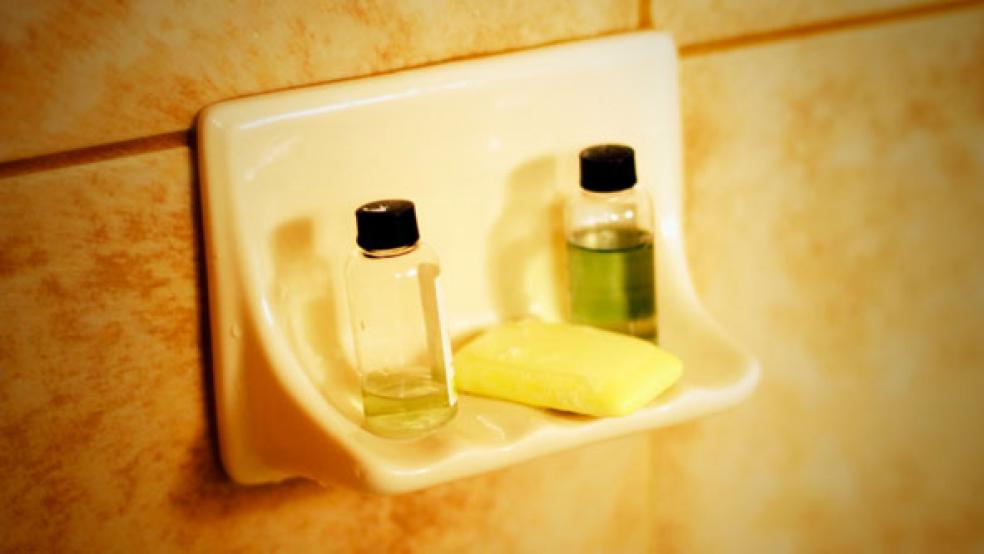In 1994, on his second trip to the United States, Derreck Kayongo was staying at a Philadelphia hotel when he noticed that every bar of soap he’d use in the morning was replaced magically with a new one by the time he returned that evening. “I asked the concierge what they did with the partially used bars, and he actually told me they threw them away!”
Though Kayongo grew up in a well-to-do family — his father, in fact, owned a soap factory in Uganda — the 42-year-old Ugandan native ended up living as a refugee with his family in Kenya after Idi Amin came to power. “That was the first time I learned that people didn’t have the basics like soap.”
Kayongo says he was stunned and irate when he saw what American hotels did with their used soap, but he channeled his anger into a nonprofit organization that aims to improve the lives of millions. His Atlanta-based Global Soap Project, founded in 2009, recovers those slivers destined for landfills and ships it to those who desperately need it in the developing world. “I started to connect the dots,” says Kayongo.
His math confirmed the value of taking action. With its more than 4.5 million hotel rooms, the United States discards more than 2.5 million bars of soap every day. Meanwhile, UNICEF says that hand washing with soap is one of the most effective and inexpensive ways to prevent diarrhea and pneumonia, which together kill 3 million children or more every year. For people making the equivalent of a dollar a day, spending even 25 cents on a bar of soap is cost prohibitive.
RELATED: Cutbacks Force Non-Profits to Feud Over Funds
Transforming his idea into reality didn’t happen overnight. “I didn’t even know how to begin, but I knew that I needed a lot of experience,” says Kayongo, whose own NGO experience included stints directing the American Friends Service Committee in 1998, Amnesty International as a regional director in 2001, and more recently as a field coordinator for CARE International, the private humanitarian aid organization.
Then in 2007 after a “paper-napkin” meeting with Vicki Gordon, the vice president of the InterContinental Hotels Group, Kayongo launched Global Soap with a donation of 500 pounds of soap from the Intercontinental Buckhead Hotel in Atlanta.
Now five years later, Global Soap has 600 participating hotels — thanks in part to a partnership with Hilton Worldwide announced last November. Hilton is also educating guests of participating hotels by placing tent cards about the soap in bathrooms.
GOAL: A MILLION BARS OR MORE
To date, more than 200,000 4-ounce bars have been sent to 18 countries, including Afghanistan, Uzbekistan, Uganda, South Sudan, Swaziland, Kenya, Ghana, and Haiti.
The process begins with a team of volunteers around the United States who collect the soap and ship it to the project’s Atlanta warehouse, where the slivers are sanitized and heated before being molded into bars again. Overseas, once an NGO requesting soap in approved, the specific amount of soap is stamped out and shipped to the target country.
In the field, the soap is distributed by partner organizations, like fellow Georgians Medshare International, which monitor and evaluate the soap’s impact on the local population.
Kayongo hopes to make a million bars of soap this year — a task which will no doubt be made easier by the purchase of a bigger production machine, capable he says of producing close to 5 million bars a year.
While one long-term goal includes receiving soap from hotels in Europe and China, Kayongo’s bigger concern is raising enough money to distribute the soap to people who need it. “We are always looking for people to buy shipping containers. That’s our main issue: making sure the soap gets to these particular villages.”
This article originally appeared in Miller-McCune and is used by permission.

